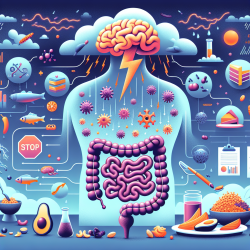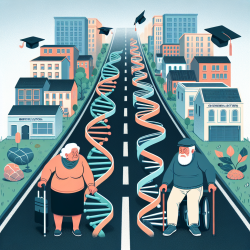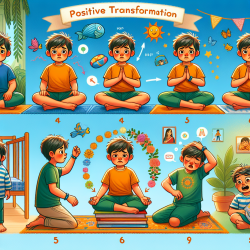As practitioners dedicated to improving the lives of children and young adults with Autism Spectrum Disorder (ASD), it is crucial to stay informed about the latest research and its practical applications. The research article, "To be understood: Transitioning to adult life for people with Autism Spectrum Disorder," offers valuable insights into how we can better support individuals with ASD during this critical period. This blog will highlight key findings from the study and provide actionable steps for practitioners to enhance their skills and outcomes for their clients.
Understanding the Transition to Adulthood for Individuals with ASD
The study, conducted through structured focus groups with 19 parents of young people with ASD, identified three major themes that are essential for successful transitions to adulthood:
- To be understood: Emphasizes the importance of societal understanding and acceptance of individuals with ASD, recognizing their strengths and providing equal opportunities.
- To understand the world: Highlights the need for individuals with ASD to navigate social and institutional environments effectively, often requiring mentorship and tailored support.
- To succeed: Focuses on creating opportunities for individuals with ASD to leverage their unique strengths, fostering self-confidence and independence.
Implementing Research Findings in Practice
Based on these themes, practitioners can take several steps to improve transition outcomes for young adults with ASD:
1. Promote a Strengths-Based Approach
Shift the focus from deficits to strengths. Recognize and harness the unique abilities of individuals with ASD in educational and employment settings. This approach not only boosts self-confidence but also enhances their chances of success in various life domains.
2. Foster Understanding and Acceptance
Educate employers, educators, and peers about ASD to reduce stigma and promote inclusion. Creating an environment where individuals with ASD are understood and accepted can significantly improve their quality of life and transition outcomes.
3. Provide Consistent and Reliable Mentorship
Establish mentorship programs that offer consistent support and guidance. Mentors can help individuals with ASD understand social norms, develop life skills, and navigate challenges, ultimately aiding their transition to adulthood.
4. Tailor Interventions to Individual Needs
Adopt person-centered approaches that address the specific needs and preferences of each individual with ASD. Customized interventions can better support their unique journey to adulthood, fostering independence and self-efficacy.
Encouraging Further Research
While the findings from this study provide valuable insights, further research is needed to explore the perspectives of young adults with ASD and those with intellectual disabilities. Practitioners are encouraged to stay updated with ongoing research and contribute to the growing body of knowledge in this field.
To read the original research paper, please follow this link: To be understood: Transitioning to adult life for people with Autism Spectrum Disorder.










